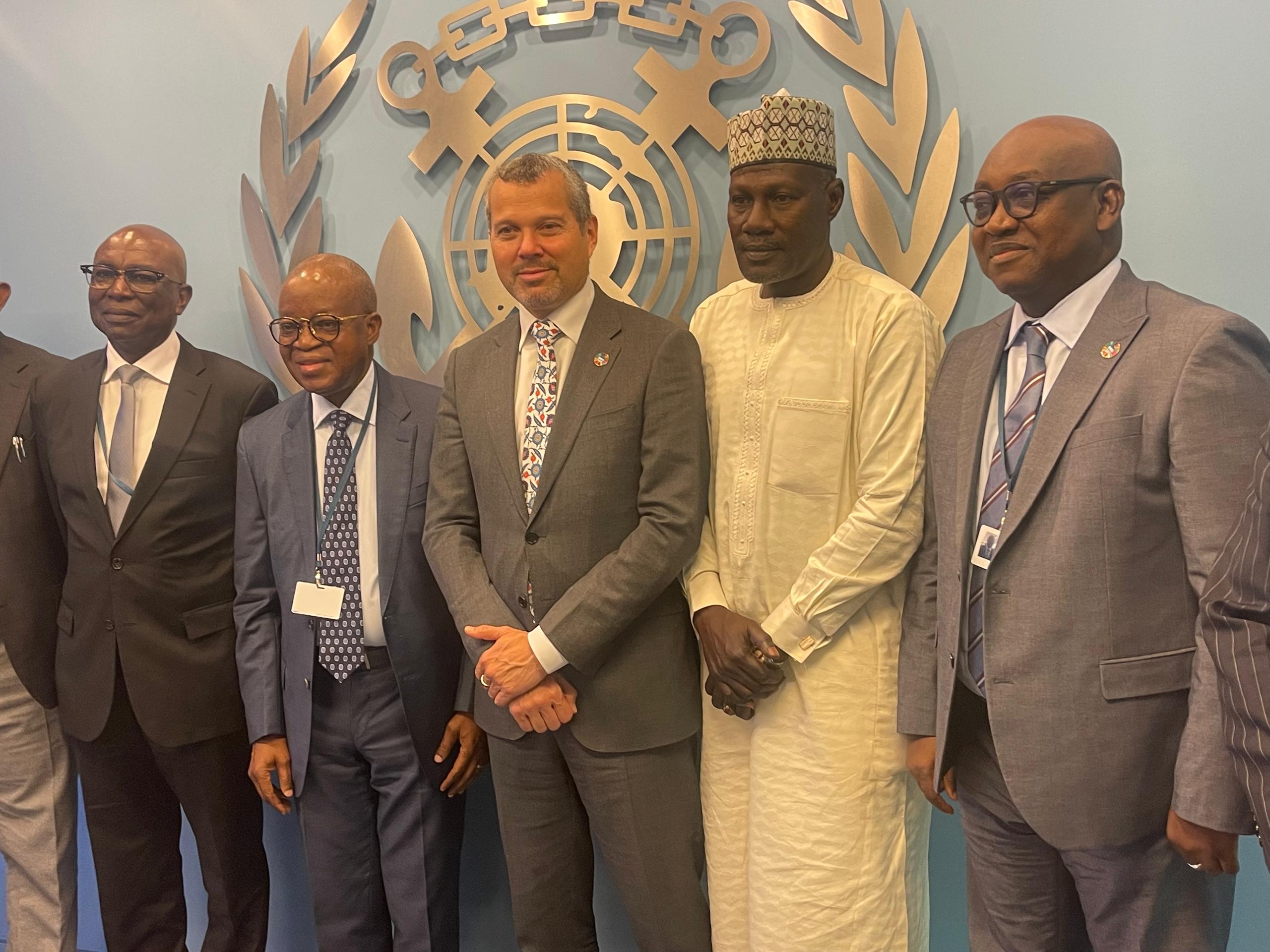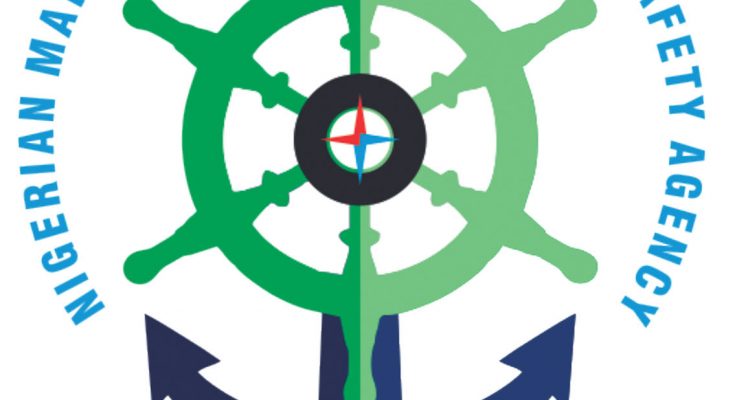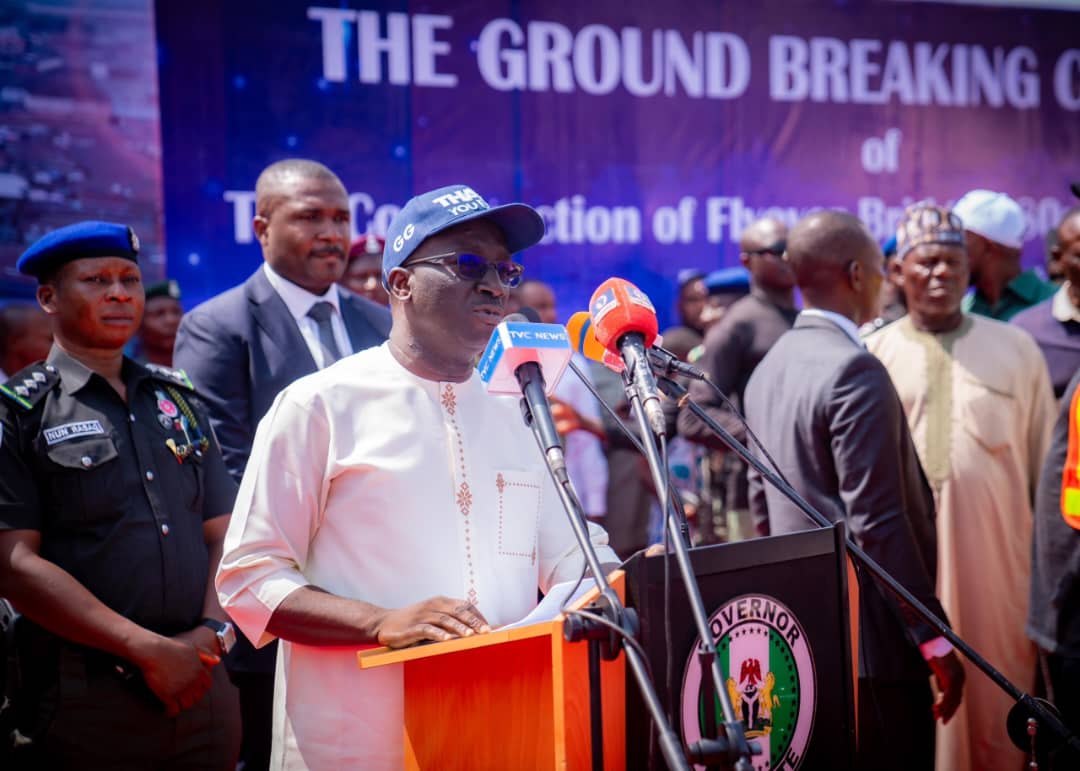Maritime
CRFFN dispatches enforcement Officers to Nigerian Ports

AFTER a week-long intensive training exercise, the Council For the Regulation of Freight Forwarding in Nigeria (CRFFN) has successfully passed out the first batch of its trained western zone enforcement officers that will henceforth upheld the provisions of the law enabling the council at seaports and land borders.
Speaking at the passing out ceremony which held at the Lagos office of the council yesterday, Registrar of the council, Mr. Mike Jukwe explained that the officers have been drilled physically and theoretically by men of the Nigerian Army Intelligent Unit in Apapa, Lagos.
According to him the officers
were trained on physical education, characters and functions of enforcement officers, arrest and investigation. Others include the CRFFN Act No. 16 of 2007, use of tools and equipment for enforcement, self defense mechanism among others.
The occasion was graced by Executive Secretary of the Nigeria Shippers Council, Capt. Adamu Biu, the Chairman of Ports Consultative Council (PCC) Otunba Kunle Folarin, representatives from the Federal Ministry of Transport and Presidents of freight forwarding associations.
Sir Mike Jukwe pointed out that after the training, the 23 trained officers will immediately be dispatched to their different areas of coverage. According to him, with the constitution of these enforcement committees “only the registered and inducted freight forwarders as well as accredited associations of freight forwarders are allowed to practice forth-with or else the hand of the law will grip and prosecute offenders, this heralds the enforcement of the Act”
Chairman Governing Council of CRFFN, Alhaji Akeem Olanrewaju after inspecting the guard command reiterated that apart from the successful completion of the training, the council has also compiled the maiden register of freight forwarders and has successfully held the first Training-Of-the-Trainers (TOT) programme.
In his address, Executive Secretary of the Nigeria Shippers Council, Capt Adamu Biu expressed happiness at the level of progress recorded in the CRFFN especially in the area of training of freight forwarders.
He said that in-spite of all the challenges recorded in the beginning there has been a show of discipline.
“in the beginning when the Federal Government saddled the Nigerian Shippers Council with the responsibility of midwifing this organization and bringing it into fusion the task fell on my colleagues and I in the council, let me make a confession, the first thing I did was to pray to almighty God to guide us and make it a success because I know that the freight forwarding industry is as complex as it can be, but I am proud that today we are where we are” Capt. Biu said.
Capt. Biu further explained that nobody can succeed in the maritime industry without the services of a trained freight forwarder.
Also speaking at the event, Otunba Kunle Folarin said that the CRFFN has really been a plus to the Nigerian freight forwarding industry which he described as turbulent but that the CRFFN has been able to calm it down. He pledged the maximum support of the Port Consultative Council to the CRFFN.
“Freight forwarders in Nigeria do not know the value of themselves, you are the most important angle in freight forwarding business and also in the economy of the maritime industry, without the cargo there will be no shipping, without shipping there will be no ports” Otunba said.
Maritime
Maritime Governance: Minister Deposits Three Accession Instruments At IMO

The Honourable Minister of Marine and Blue Economy, Adegboyega Oyetola has deposited three Instruments of Accession to IMO Conventions signed by President Bola Ahmed Tinubu with the global body.
He did so on Tuesday, at the headquarters of the International Maritime Organization (IMO), which acts as the repository for these conventions.
This move, coming a few weeks after Nigeria declared its intention to contest election for a seat on the IMO Council, is expected to enhance Nigeria’s maritime governance and align its practices with international standards, promoting maritime safety, security, and environmental protection.
Shortly after the presentation ceremonies, Oyetola informed the IMO Secretary General, Arsenio Dominguez, of the President’s commitment to ensuring that Nigeria aligns with international maritime standards regarding maritime safety, security, and sustainable marine practices.
ALSO READ: NNPCL Launches Utapate Crude Oil Blend, Eyes Production Expansion In 2025
He also called on the IMO to extend technical support to Nigeria.
In his words, “These instruments, duly acceded by His Excellency, the President of the Federal Republic of Nigeria, signify Nigeria’s continued commitment to aligning with international maritime standards, ensuring maritime safety and security, and promoting sustainable marine practices.
“We hereby request tailored technical cooperation under the Integrated Technical Cooperation Programme (ITCP) to enhance Nigeria’s compliance with IMO conventions and improve our maritime governance and implementation of the instruments we submitted today.”
On his part, Dominguez, acknowledged with appreciation the formal deposition of the Instruments of Accession, stating that it underscores Nigeria’s steadfast commitment to aligning with global maritime standards.
“I congratulate Nigeria for its exceptional efforts in acceding to these six critical IMO instruments. I encourage continued momentum by securing presidential assent to additional key conventions. We at the IMO remains fully committed to supporting Nigeria through technical cooperation and capacity-building initiatives to ensure the successful implementation of these instruments,” he stated.
The instruments Oyetola handed over to Dominguez include the instrument of accession to the 2005 Protocol to the Convention for the Suppression of Unlawful Acts against the Safety of Fixed Platforms Located on the Continental Shelf (SUA Protocol 2005), the instrument of accession to the International Convention on Standards of Training, Certification, and Watchkeeping for Fishing Vessel Personnel (STCW-F), and the instrument of accession to the Protocol Relating to Intervention on the High Seas in Cases of Pollution by Substances Other Than Oil (Intervention Protocol 1973).
It was gathered that three other Instruments of Accession signed by President Tinubu are undergoing further steps to complete the processes for their deposit.
Maritime
Capacity Dev’t: NIMASA Assures On Cabotage Vessel Financing Fund

Funds accrued under the Cabotage Vessel Financing Fund (CVFF) are intact and currently held with the Central Bank of Nigeria (CBN) under the Single Treasury Account (TSA).
This assertion was made by the Nigerian Maritime Administration and Safety Agency (NIMASA), in a statement in Lagos on Tuesday.
The clarification became necessary to address “a misleading publication alleging that funds have disappeared from the CVFF account”.
ALSO READ: Okpebholo Hits Ground Running, Flags Off Edo’s 1st Flyover Bridge
The statement reads, in part, “The report of a missing money is both misleading and false.
“For the record, the Cabotage Vessel Financing Fund, securely held in the NIMASA account at the Central Bank of Nigeria (CBN), remains intact. There has been no disappearance of funds, and no illegal transactions, as the article suggests. This misinformation is a figment of the authors imagination, aimed at undermining NIMASA’s integrity, and mislead the public about the Agency’s operations.
“The Management of NIMASA will ensure that the CVFF is utilised in line with its statutory purpose. NIMASA Director General, Dr Mobereola has assured stakeholders of the safety of funds under the CVFF.”
The statement cited the DG thus, “Let us be clear that the CVFF account at the Central Bank of Nigeria is safe, intact, and secure. We at NIMASA will continue to manage it with the utmost responsibility, and there are no irregularities or illegal activities surrounding the funds. I urge the public to disregard this false narrative and to continue trusting the Agency’s ability to uphold the integrity of Nigeria’s maritime sector”.
It was gathered that the CVFF is a fund established under section 42 of the Coastal and Inland Shipping (Cabotage) Act 2003 to promote the development of indigenous ship acquisition capacity and to provide credit facilities to local maritime operators.
The NIMASA, assured of its commitment “to transparency, accountability, and the advancement of Nigeria’s maritime sector.”
Maritime
Okpebholo Hits Ground Running, Flags Off Edo’s 1st Flyover Bridge

Edo State Governor, Senator Monday Okpebholo appears eager to deliver the dividends of democracy to his constituents.
This is discernible from the frenzy of activities being witnessed in his first few days on the job, including dissolution of boards, constitution of investigative panels, flagging off of infrastructure projects, among others.
In the bid to address the perennial road traffic congestion negatively impacting economic and social activities in Benin City, the state capital, Gov Okpebholo on Wednesday flagged off the construction of a flyover bridge.
Biztellers reports that the flyover bridge around the popular Ramat Park in the city centre is the first of such in the history of Edo State.
ALSO READ: Tinubu Seeks ₦1.767tn Loan to Tackle 2024 Budget Deficit
The Edo State Government made the disclosure in its verified handle on micro-blogging site, X, on Wednesday.
It wrote, “Traffic decongestion: Gov Okpebholo flags off first flyover in Edo.
“Edo State Governor, Sen. Monday Okpebholo has flagged off the construction of a flyover bridge at Ramat Park, Benin City, the State Capital, as part of immediate efforts to reduce traffic congestion in the city.”











